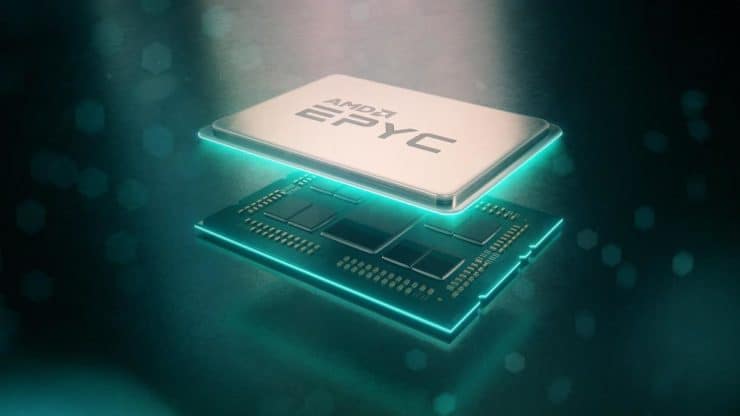AMD launches new EPYC processors and a new Zen 4 processor core for its data center portfolio.
Data centers remain an important market for chip manufacturer AMD, as illustrated by the continuous introduction of relevant processors. Now, the chip manufacturer presents its third generation of EPYC processors: Milan-X.
The most striking feature is AMD 3D-V Cache, bringing so-called 3D crushed packet technology to data centers. As a result, the first CPU in a server enables ‘high-performance 3D die stacking’, which, according to the chip manufacturer, is a major step forward in CPU design and packaging. AMD states that the introduction ultimately delivers up to 50 percent more performance in data center environments.
Other functionality
Additionally, the third-generation EPYC processors can deliver the performance of ‘normal’ third-generation EPYC processors on demand. A BIOS upgrade makes it possible to use both types of third-generation processors side by side.
At this time, Microsoft Azure HPC virtual machines running on third-generation EPYC processors with AMD 3D V-Cache are already available through private preview. More of these VM’s roll out broadly in the coming weeks. The physical third-generation EPYC processors with AMD 3D V-Cache will become available in the first quarter of next year. Partners such as Cisco, Dell Technologies, Lenovo, HPE and Supermicro are developing server systems with the model in mind.
Project Genoa
In addition, AMD is launching the Genoa project, intended to optimize the internal technology of its processors. Project Genoa aims to deliver the world’s best high-performance computing (HPC) processor for general computing tasks. The 5 nm processor should feature up to 96 high-performance Zen 4 cores and support memory and I/O technology with DDR5 and PCIe 5. The Genoa processor also supports CXL and enables significant memory expansions for data center applications. The processor is due to hit the market next year.
